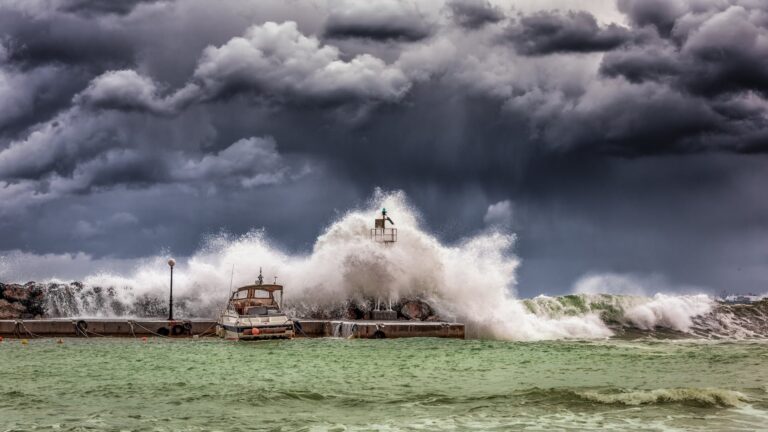How do solo sailors sleep at night?
- Introduction
- Benefits of solo sailing
- Challenges of solo sailing
- Sleeping patterns of solo sailors
- Different sleeping positions on a boat
- Different sleeping arrangements on a boat
- How to create a comfortable sleeping environment on a boat
- Routine to promote good sleep quality for solo sailors
- Benefits of napping while sailing
- How to stay alert while sailing solo
- Conclusion
How do Solo Sailers Sleep at Night?
Solo sailing is an exhilarating and rewarding experience for those brave and adventurous enough to take it on, but it comes with its own unique set of challenges—including how to get a good night’s rest! Solo sailors must learn how to create a comfortable, safe sleeping environment and develop a routine that allows them to get adequate rest while still remaining alert and attentive during their shifts at sea. Let’s explore the topic of how solo sailors sleep at night in more detail.
Benefits of Solo Sailing
Solo sailing can be an incredibly liberating experience, allowing you to explore the world around you without relying on anyone else’s help or opinion—you are your own captain! You can choose your own route, set your own pace, and decide when and where you want to stop along the way. It can also be an incredibly rewarding experience as you develop new skills, including increased confidence in your navigational abilities as well as improved problem-solving skills in unexpected or dangerous situations at sea.
Challenges of Solo Sailing
Of course, there are also some challenging aspects of going it alone at sea that should not be overlooked or underestimated—namely how to get enough rest while out on the ocean alone! This is particularly true if the weather is bad or if you are navigating in unfamiliar waters where local knowledge is limited or nonexistent. The need for vigilance when navigating and operating a sailboat alone means that sleep often gets pushed aside in favor of safety and security, making it difficult for solo sailors to get adequate rest at night despite their best efforts.
Sleeping Patterns of Solo Sailors
Most solo sailors don’t sleep through the night like they would if they were back on land; instead, they break up their sleep into two or more blocks divided by periods of work and eating so that they can remain alert while still getting some restorative rest when needed most. This method has been found to be incredibly effective when done right, allowing sailors to remain focused and energized throughout their voyage without sacrificing much-needed restorative sleep time each night.
Different Sleeping Positions on a Boat
When it comes time for bed (or “down time” as they call it out at sea!), there are several different positions that can be comfortably adopted aboard a sailboat depending on what works best for each sailor—the most common being lying down flat or sitting up with your back against something solid (such as the mast). The goal should always be finding what works best for each individual sailor so that they can get maximum comfort with minimum effort during their down time each night!
## Different Sleeping Arrangements On A Boat
The type of sleeping arrangement chosen will depend largely on the size and layout of the vessel being sailed, with larger boats typically having more options available than smaller ones (such as cabins with bunks). Some vessels may also feature dedicated “sleep stations” located away from high-traffic areas such as the galley or navigation station where noise levels won’t interfere with getting some much-needed shut eye during off-duty hours!
## How To Create A Comfortable Sleeping Environment On A Boat
Creating a comfortable sleeping environment aboard a sailboat requires careful consideration when it comes to both temperature control and lighting levels; this is especially true during colder months when extra layers (such as blankets) may be needed to keep warm during rest periods. Keeping plenty of fresh air flowing throughout the vessel can also help reduce condensation buildup which often leads to uncomfortable dampness in enclosed areas below deck! Additionally, installing blackout curtains over any windows that face towards the sun can help reduce glare from outside sources which may otherwise disrupt sleep patterns each night (especially during summer months).
## Routine To Promote Good Sleep Quality For Solo Sailors
Solo sailors should try their best to stick to an established routine each evening before bedtime; this includes setting aside some quiet time for relaxation which helps promote better quality sleep once lights out is called! Allowing plenty of time for meals (including snacks) throughout the day can also keep energy levels up until bedtime rolls around so that fatigue doesn’t become an issue before hitting the sack each night; this could mean having dinner earlier than usual if needed so that there’s enough time left over before dark falls! Additionally, avoiding caffeine late in the day can help reduce jitters caused by nervousness which may otherwise interfere with quality sleep patterns each evening.
## Benefits Of Napping While Sailing Solo
Napping during off-duty periods has been found to provide numerous benefits for solo sailors such as improved alertness throughout longer voyages; this can be particularly helpful if conditions become unfavorable due to inclement weather or unexpected mechanical issues aboard ship requiring immediate attention from crew members! Napping also prevents fatigue from becoming an issue during times when long shifts are necessary due to lack of crew members available onboard (which is often inevitable when sailing alone!). However, naps should never exceed 20 minutes in duration so as not to cause disruption within regular sleeping patterns established by solo sailors each evening before bedtime!
## How To Stay Alert While Sailing Solo
When sailing alone it’s important for all crew members onboard (even if just one!) remain vigilant at all times; this means staying awake long enough so that regular shifts are kept throughout each day no matter how tiring things may become after long hours spent out at sea without any real human interaction other than oneself! Staying hydrated throughout shifts is key here since dehydration has been found to cause fatigue very quickly which could lead to unfortunate events occurring due dangerous lapses in concentration aboard ship! Additionally, listening carefully for any new noises coming from inside or outside the vessel may provide valuable cues regarding potential problems happening elsewhere onboard which could require immediate attention from crew members even if asleep below deck at that moment!
Conclusion
Overall, getting sufficient quality sleep aboard a sailboat requires careful consideration when it comes both planning ahead before setting sail as well as maintaining strict routines once underway; this includes creating comfortable sleeping environments onboard with temperature control measures taken into account along with light levels managed appropriately throughout all hours spent out at sea! Additionally, naps provide invaluable benefits such as improved alertness no matter how long voyages become while keeping up hydration levels helps prevent fatigue setting in too quickly!. Finally, remaining vigilant even while asleep below deck by listening carefully for any potential problems occurring elsewhere onboard goes a long way towards ensuring safety and security both now and during future voyages out alone upon open waters anew!







